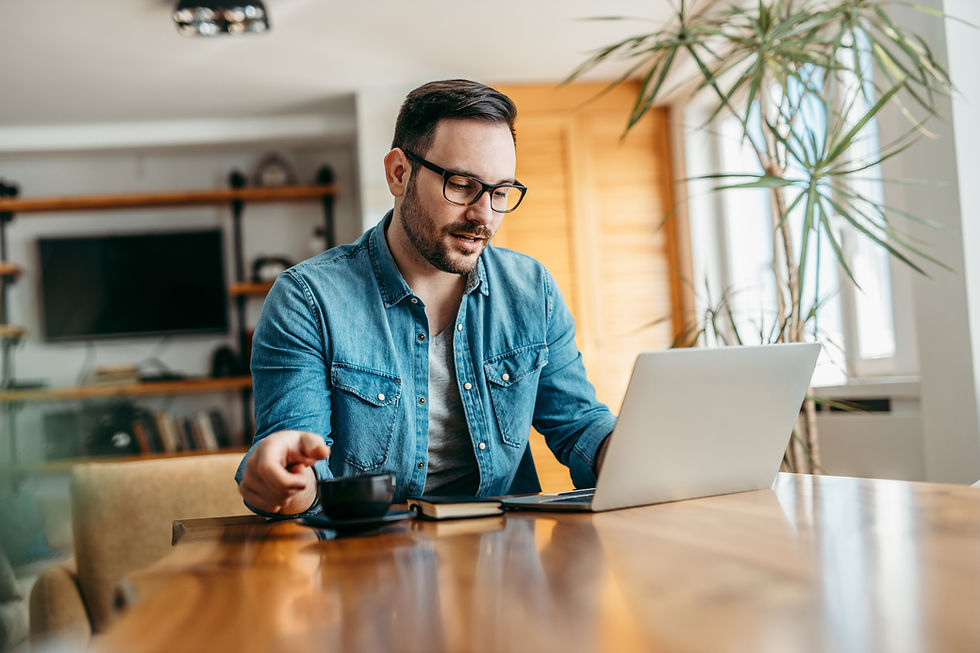Should You Really Buy a House?
- Art

- Aug 16, 2022
- 4 min read

Why do you want to buy a house?
God has designed us to live and give generously. So our money decisions matter. And purchasing a house is one of the biggest money decisions you will make.
There are several reasons why you may want to buy a house. Maybe you think that homeownership is just what you should do because, after all, you are a grown-up. Maybe you want a place to call your own, one that places no limitations on the color of your walls. Maybe you are getting married and homeownership seems like a good next step in the relationship. Maybe you think homeownership helps your finances more than renting.
There are many reasons why you may want to own a home. But desiring homeownership doesn’t necessarily mean that you are ready to own a home.
HOMEOWNERSHIP ISN’T FOR EVERYONE (AND THAT’S OK)
While homeownership may be the right decision for some, it may not be the best move for others. Sure, owning a piece of American soil sounds appealing. But if you rent, let me put your mind at ease, there is a time and place for renting as well. You are not a bad person because you rent.
Consider the often-overlooked costs of homeownership. There are homeowners association fees, taxes, insurance, landscaping costs, and general maintenance that your finances must cover. For renters, your landlord takes care of those expenses. If your hot water heater breaks, you don’t have to pay for its repair or replacement. You just need to call your landlord. He or she takes care of it for you.
Homeownership encompasses much more than just paying a monthly mortgage bill. You simply might not be ready for these costs and responsibilities. And that’s OK.
But I also do not want to discourage you from homeownership.
THE MOST IMPORTANT REASON TO BUY A HOME
There are several potential motives behind a person’s desire to own a home, but here is the most important reason—homeownership is a long-term strategy to free up future cash flow. And it is for this reason why I do not want to totally discourage you from future homeownership.
What does it mean, “Homeownership is a long-term strategy to free up future cash flow?” It means that you buy a home to, one day, be free of a house payment (you pay off your mortgage) and have more money available for other purposes. This cannot happen with renting.
Too often we consider having a mortgage as part of life. We view mortgage payments just like a water or electric bill—something that will always be there. But that’s not the correct view. Mortgages can and should be paid off.
Take a second, and imagine life without a house payment. For those who desire to live more generously, to use their resources for something greater than themselves, image how a mortgageless life could ramp up your financial generosity. It is a nice thought, right?
This is the most important reason why you would buy a home—to, one day, be without a house payment.
YOUR GUIDE FOR HOMEOWNERSHIP READINESS
So should you really buy a house? It is an important question. Taking the plunge too early can create some serious financial stress. Consider the following three questions as a guide. If you can answer “yes” to all three questions, you may be ready for homeownership.
1. Do you plan on living there for at least five years? The financial gains of homeownership can be limited if you sell the house too quickly. There are upfront costs to overcome and most of your mortgage payment goes toward interest during the first years. Experiencing any true financial gain from homeownership takes time. So if you are planning on moving within five years, consider renting.
2. Will your mortgage payments be less than 30 percent of your after-tax pay? Avoid being house poor, where all your money goes toward your mortgage payment. Give your finances the flexibility for you to live a life of generosity. If your after-tax pay is $4,000 per month, I recommend that your mortgage payment should not be any greater than $1,200 ($4,000 x .30).
3. Do you have at least 20 percent for a down payment? If your mortgage is more than 80 percent of your home’s value, you could get hit with private mortgage insurance (PMI). PMI is an additional monthly fee lenders charge because you are considered a higher-risk borrower. PMI is to protect the lender not the borrower. Yes, according to the lender, you are a risky borrower.
That’s a thought to ponder. Even if the lender does not require 20 percent to avoid PMI, 20 percent is still a good indicator that you have handled your finances well and are ready to buy a home.
If you can answer “yes” to each of these questions, you are probably ready to buy a house. Buying a home is a big deal. It can be a tremendous blessing or a financial nightmare. So take time and consider whether you are really ready to buy a house or not.





Comments